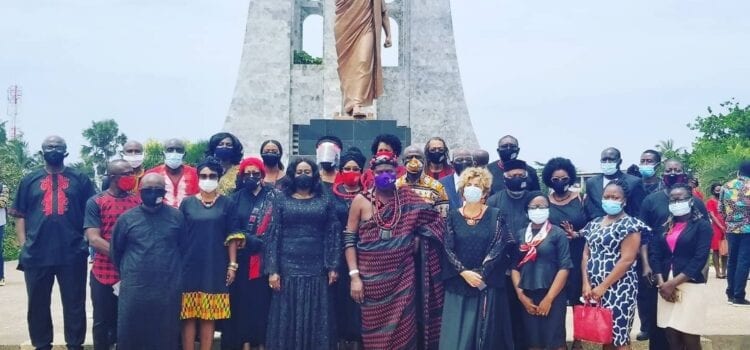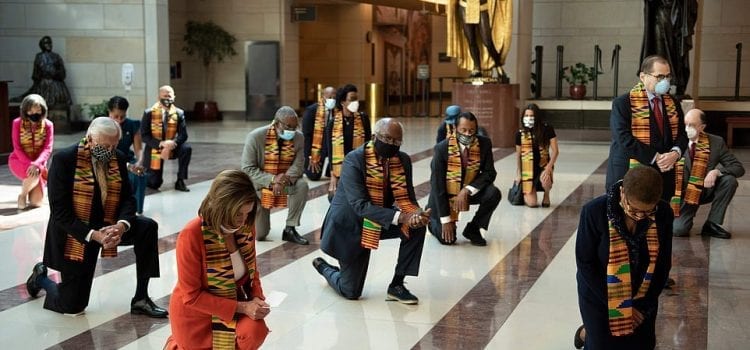Naomi Osaka Wins US Open, Honours Her Ancestral Heritage With Kente Headgear
Naomi Osaka is the number one ranked female tennis player by the Women’s Tennis Association, a three-time Grand Slam champion and she recently won the title at the U.S. Open. She didn’t shy away from using her platform to show support and solidarity in the Black community throughout this year’s US Open tournament. Osaka is of Haitian and Japanese heritage and recognizes the power of using her voice on such a big platform. “I feel like I’m a vessel at this point in order to spread awareness,” she said.
The 22-year old made strong statements by wearing seven different face masks in seven matches that bore the names of Black people who have been killed by police and whose names have been part of the ongoing protests about racial injustice in America.
Osaka said that she used her platform to protest because she wanted to get more people talking about it. She admitted that she lives in a bubble and may not see what’s truly happening on the ground, but she knows through social media and the news what has been happening to Black people. Each of the masks she wore had the names of Breonna Taylor, George Floyd, Philando Castile, Elijah McClain, Trayvon Martin, Ahmaud Arbery and Tamir Rice. “I feel like the point is to make people start talking,” she said to the press. She was asked by the media what the message was she wanted to send, and she responded with “Well, what was the message that you got is more the question.”
As the daughter of a Haitian father and Japanese mother, she recognizes her culture and heritage and often makes reference to her Haitian roots. In a tweet during the US Open she said, “I would like to thank my ancestors because every time I remember their blood runs through my veins I am reminded that I cannot lose.” The people of Haiti have direct ties to Africa with lineage to a few nations including Senegal, Ghana, Nigeria, Togo, Benin and the Congo. Haitian culture still has some similarities to West African culture, including the bold printed fabrics sometimes worn.
Osaka made a style statement after her match wearing a vibrant dress with traditional Ghanaian Kente as her headwrap after her U.S. Open win. “You already know I had to bring out the headwrap for this one,” she wrote on her Instagram post. This was a tribute to her Haitian heritage, which is deeply rooted in Africa.
By Ivy Prosper
Emancipation Day Virtual Panel Discussion on Leveraging Our Resilience; Black Lives Matter
Every year, since 1998, Ghana celebrates Emancipation Day with a series of activities that honour leaders of the Pan African movement and celebrate the day when slavery was abolished in most British Colonies on August 1, 1834. This year, due to the Covid-19 pandemic, and restrictions on crowds and the number of attendees at events, adjustments were made to accommodate and still have significant conversations to learn and grow from our past.
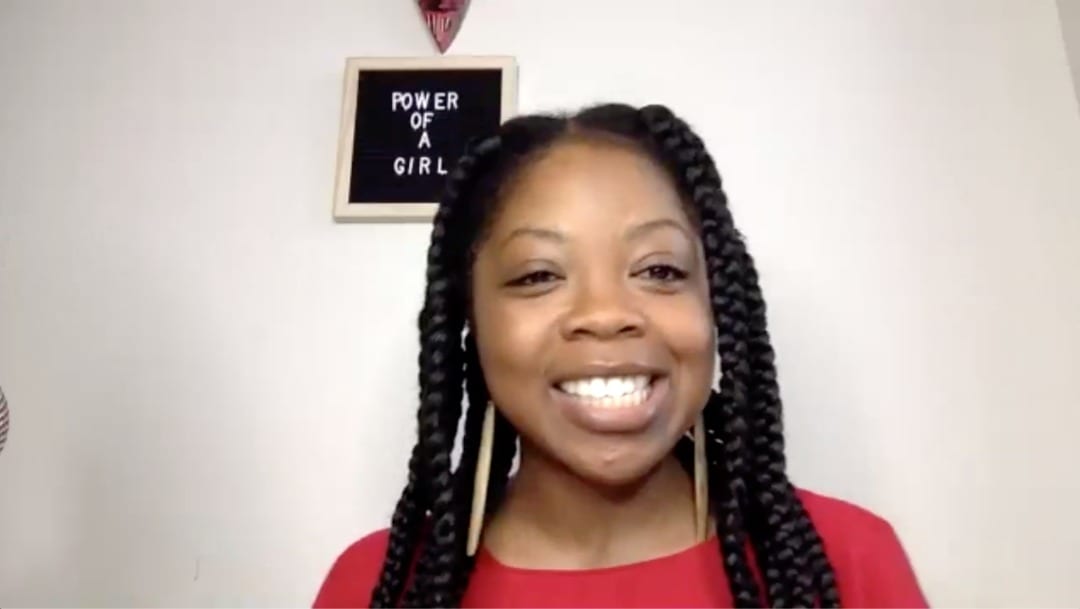
This year, a Virtual Panel Discussion was held on 28th July via the Zoom Webinar platform. Moderated by Aisha Addo, founder of the Power to Girls Foundation, the panel’s theme was Leveraging Our Resilience; Black Lives Matter. The panelists included African American Actor and Activist, Lou Gosset Jr., Pan Africanist, Professor Kojo Yankah, Leader of Diaspora Coalition of Ghana, Rabbi Kohain Halevi, and Author, Lala London.
The conversation’ theme was in response to the ongoing racial protests sparked by the death of George Floyd, who was killed by a Minnesota Police Officer in May. Since then, the Black Lives Matter movement has become a global phenomenon working to topple racist institutions in the U.S., Canada, the U.K., and Europe. Black people are standing up and speaking out against the institutionalized racism that exists in law enforcement and other systems.
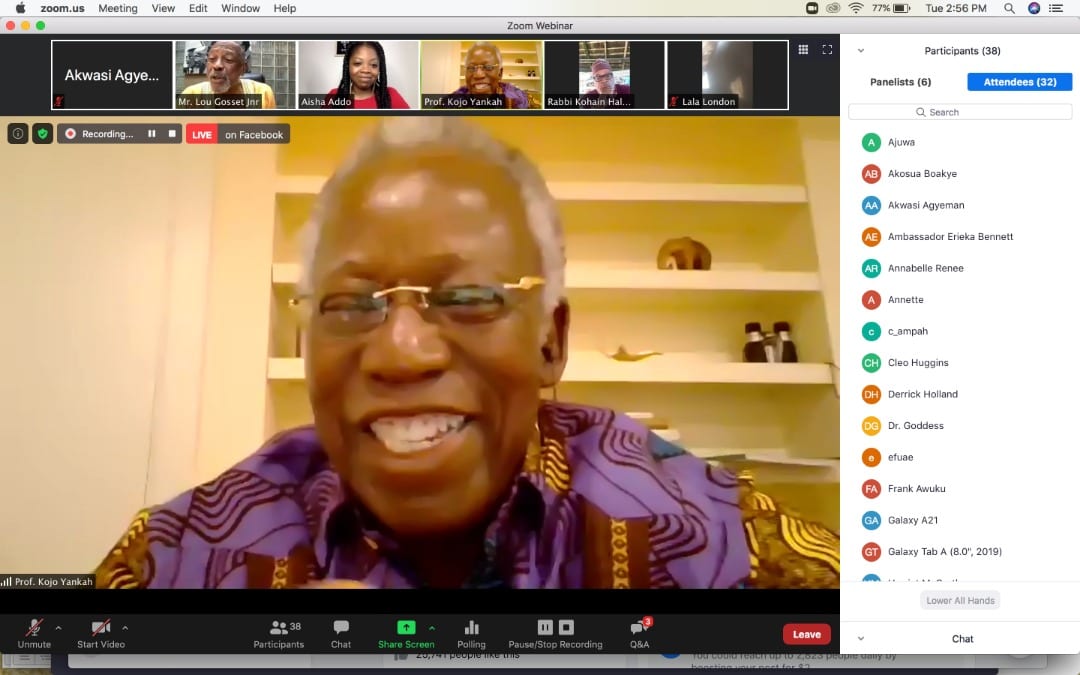
The notion of Africa as home, is becoming a renewed conversation and the pan African movement has been re-awakened. Professor Kojo Yankah, was the former Chairman of the PANAFEST Foundation for over a decade and has been a part of the pan African movement for most of his career. He said that black lives have mattered from early history when the royal African civilization was destroyed by the Greeks. He said that everything about the black person, the African, was destroyed and it continued through the period of slavery. “The culture of the African was further destroyed, not only by getting the Europeans to put their needs on the head of Africans, but they destroyed the humanity of the African….they were successful in getting the African to feel inferior,” he said.
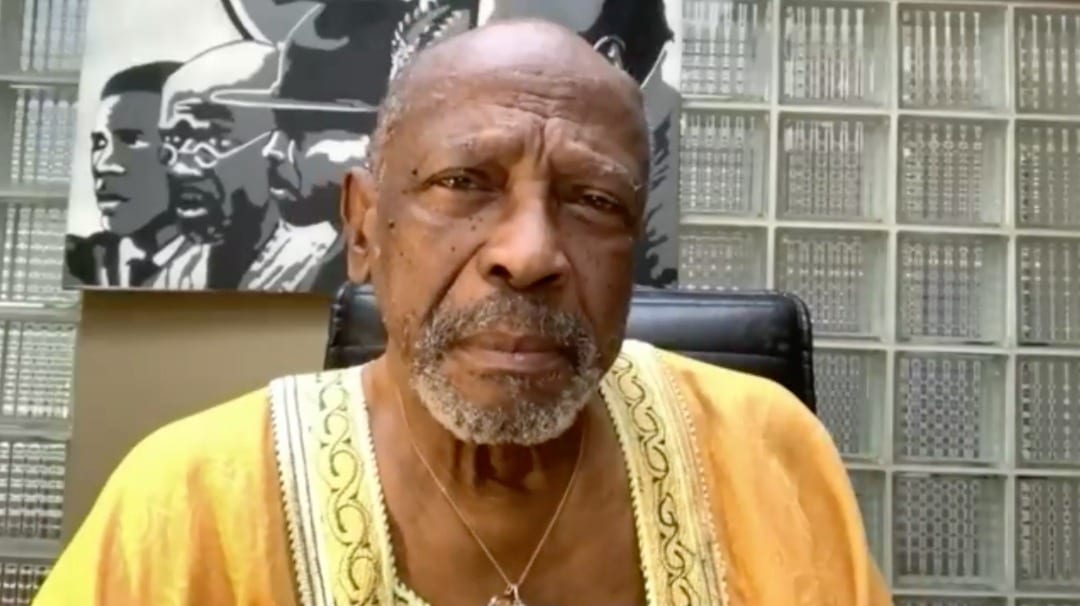
Lou Gosset Jr. is an award-winning African American Actor and Activist. He is he great-grandson of a slave and took a DNA test that revealed he is of Liberian and Sierra Leonean descent. His role in the 1977 miniseries ‘Roots’ catapulted him to stardom. On the panel discussion he shared his sentiments on the first time he traveled to the continent of Africa. “What I heard about Africa, is nothing in comparison to what I saw,” he said. “I could not wait to go back home and be proud to talk about what I found out.” The way Africa is often portrayed, many first-time visitors are surprised by what they see. He suggested therefore it is important for people in the diaspora to make their own journey and see Africa for themselves to break and dispel the myths.
As someone working in the creative industry of film, he also spoke about the roles he has played and how it is part of the narrative. Yankah added that our history did not start with slavery and it is important for our filmmakers and writers to get to work creating our stories, so we are not so narrow-minded.
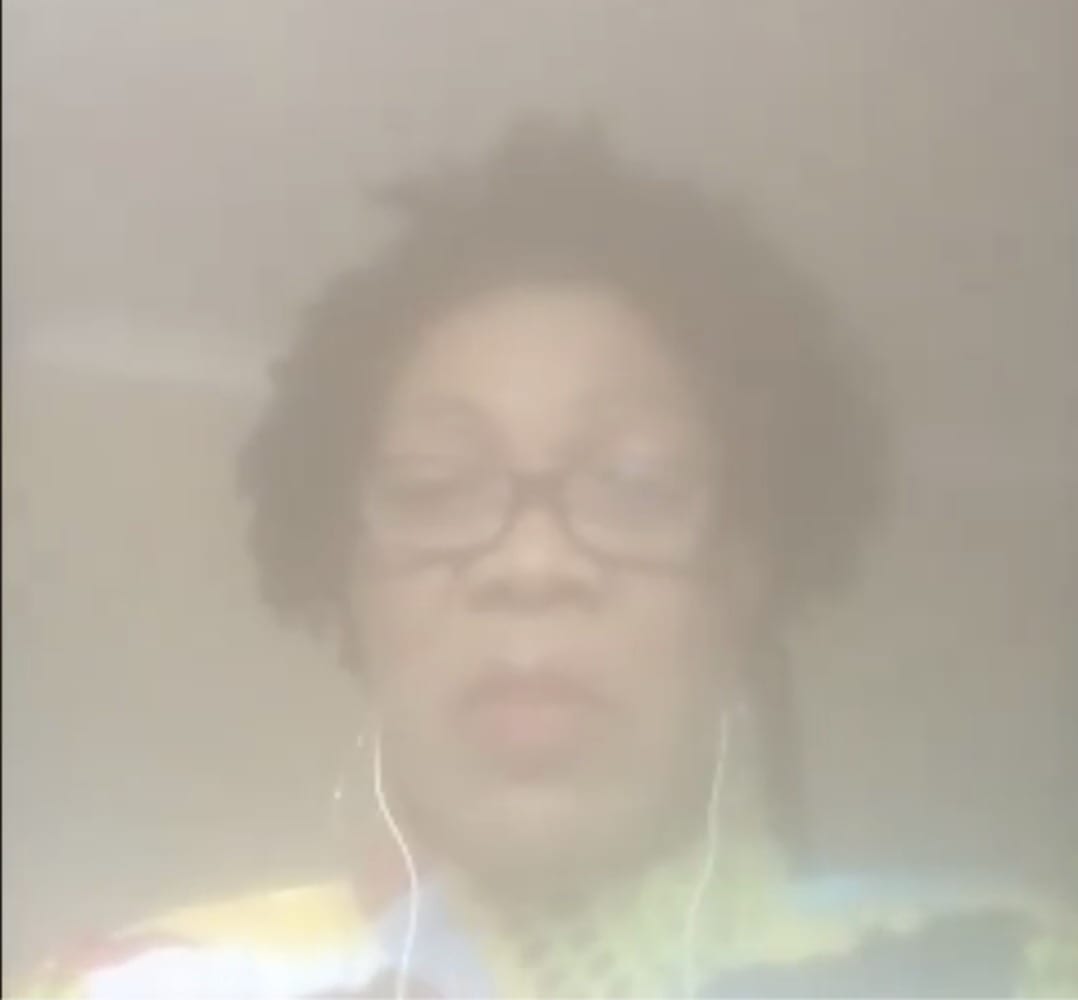
Author, Lala London, came to Ghana on a visit from St. Vincent and the Grenadines before the pandemic. Like many travelers, she is in the country until borders open. During the discussion, she said, “My own grandfather was the son of a slave….so these issues are really dear to me.” She spoke of how the Black Lives Matter movement affects her directly, having a son who is an African American. “We see what happens every day in a country that is supposed to be the bastion of democracy…where black lives somehow just don’t matter,” she added.
Moderator Aisha Addo asked the panel what actionable steps can we use to drive the concept of unity and moving forward across the diaspora and in Africa? Rabbi Kohain Halevi answered her saying, “I think we need to set a new paradigm for what a model society should be today….we have to surpass the model in current existence…include respect for human rights.” He continued by explaining that slavery was a mental construct that set a mental state in our people and we need to work towards dismantling that before we can think of reconstructing it.
Mr. Gosset said that we need to work on our communication. Being an elder, he said he sees the importance in that now. Unity is perhaps the most important part of progress in the black community both in Africa and the diaspora. Sometimes we see a division between the African Americans and the continental Africans, and we need to bridge the gap. He added that, “We cannot make it unless we add our Africans to the fight.”
Ms. Addo asked for one power statement from the panelists before wrapping up the Virtual Discussion and Professor Yankah give a meaningful response. “Since we are also commemorating Emancipation, I would like to hammer the point made that we need to get all our creative people to now focus on what we have lost,” Professor Yankah said, “…we need themes that unite and revive the consciousness of our people…in terms of being proud of who we are and raising the consciousness of blackness.”
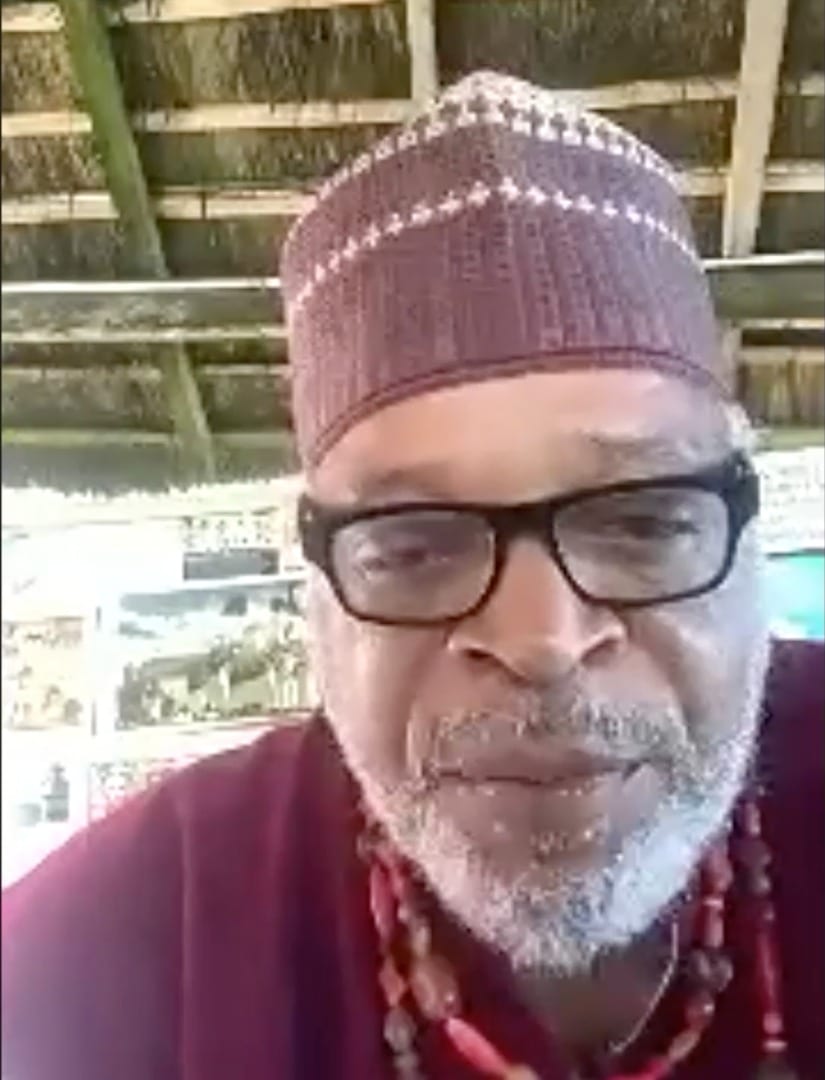
Rabbi Kohian said that during the season of Emancipation we should remember to emancipate ourselves from mental slavery. “If we are not for ourselves, who will be for us?”
By: Ivy Prosper
Emancipation 2020 Wreath-Laying Ceremony Honours Pan African Leaders
Three leaders in the Pan African movement, W.E.B. DuBois, George Padmore and Kwame Nkrumah, were honoured in a wreath laying ceremony on July 27th, 2020. This marked the beginning of activities that lead up to the annual celebration of Emancipation Day on August 1st. This year’s theme for Emancipation is, “Our Heritage, Our Strength, with a sub-theme: ‘Leveraging our Strengths; Black Lives Matter’.
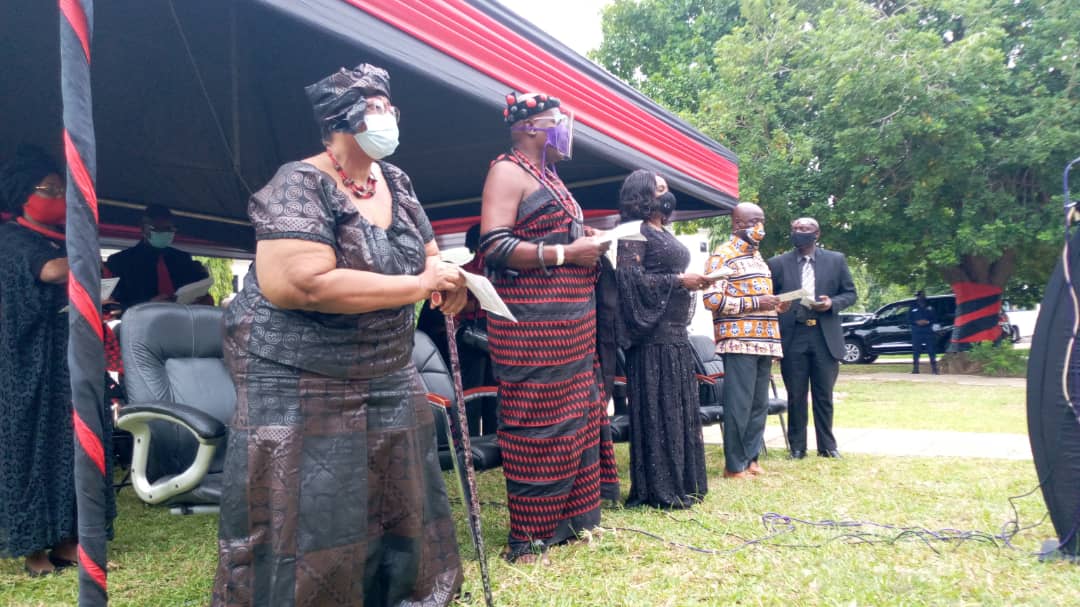
The ceremonies took place at the W.E.B DuBois Centre, George Padmore Library and at the Kwame Nkrumah Memorial Park. Each of these leaders were honoured with a small ceremony at their respective place they have been laid to rest. Notable people present at the ceremonies included the Minister of Tourism Arts & Culture, Barbara Oteng-Gyasi, CEO of Ghana Tourism Authority, Akwasi Agyeman, Director of Diaspora Affairs, Office of the President, Akwasi Awuah Ababio, Chairperson of PANAFEST Foundation, Professor Esi Sutherland-Addy, Head of Missions at Diaspora African Forum, Ambassador Erieka Bennett, Executive Director of PANAFEST Foundation, Rabbi Halevi Kohain, and Author Lala London from Saint Vincent & Grenadines.
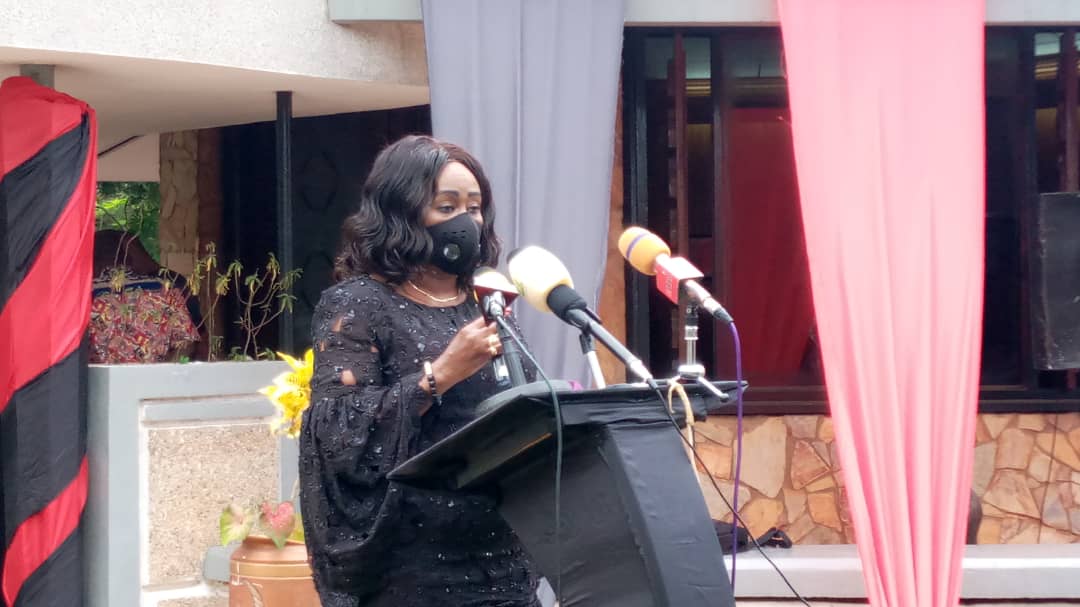
Hon. Oteng-Gyasi delivered a heartfelt message during her keynote address at the DuBois centre and welcomed the youth and students who also joined in the event. The minister said that the writings of DuBois and his political philosophies challenged the notion that the black man was inferior. She said that it was no surprise that former President Nkrumah found a kindred spirit in DuBois and that his relocation to Ghana was a clear demonstration of his Pan African beliefs. “The call for African unity championed by Dr. Kwame Nkrumah is as relevant today as it was in the early days of independence,” the minister said.
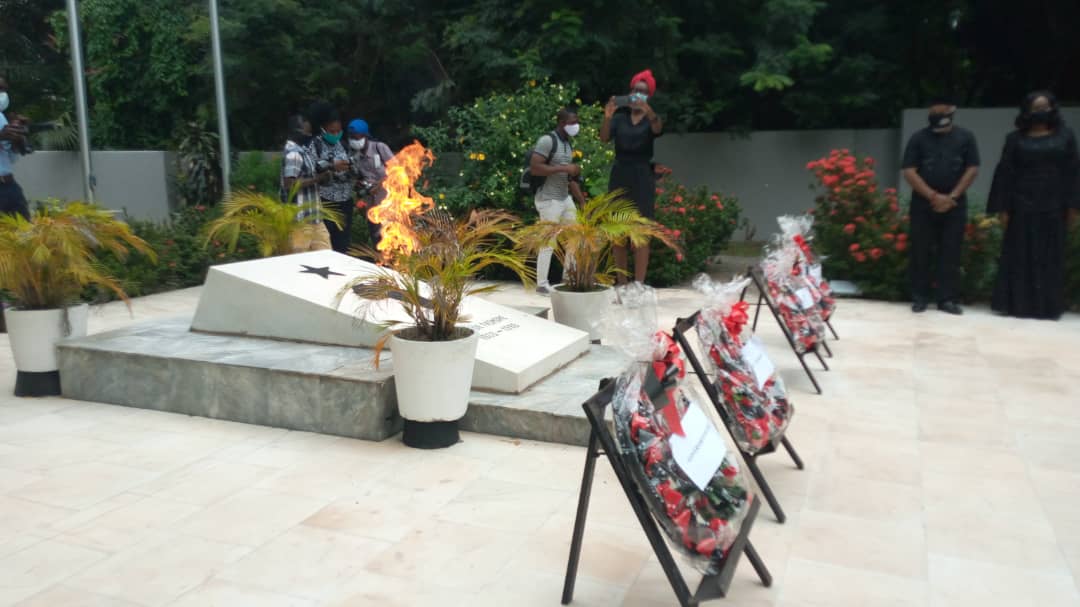
Four wreaths were laid at each location to honour the three men: from the government of Ghana, traditional authorities, the global African family and the youth of Africa. Due to covid-19 measures in place, the number of attendees at each ceremony was limited and strict measures were adhered to when the wreaths were laid.
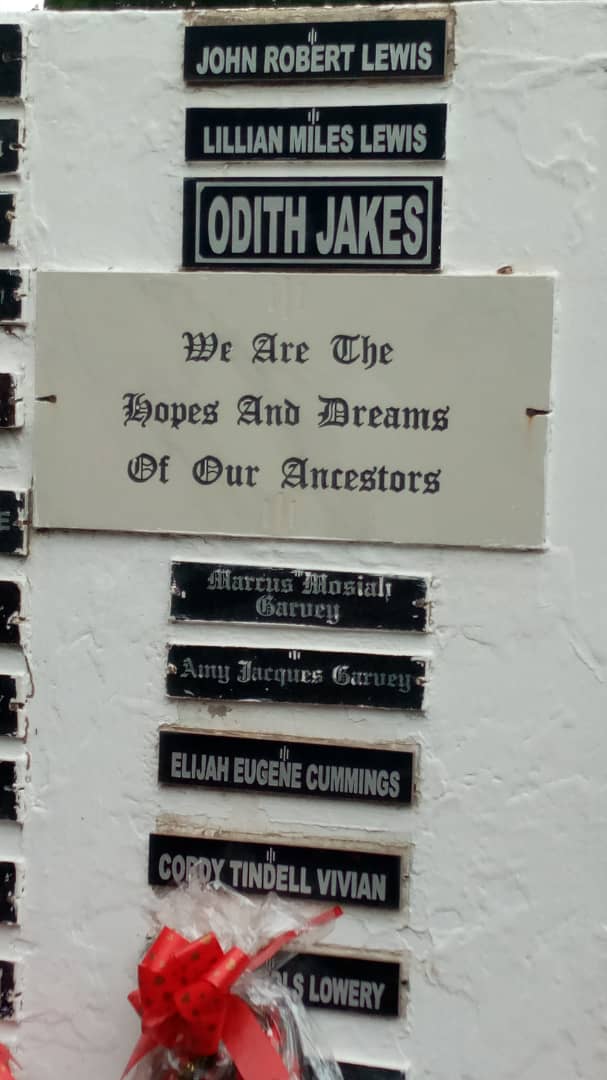
After the ceremony at the Dubois centre, a plaque honouring the late civil rights icon, John Robert Lewis was unveiled on the Sankofa Wall at the Diaspora African Forum. Ambassador Bennett said that, “John Robert Lewis dedicated his life to the emancipation of black people around the world.” The memorial wall has the names of people who have made an impact in the movement for black people on the continent and in the diaspora. Bennett said that Lewis kept the spirit of Dr. Martin Luther King Jr. alive. It was important to honour him. The name of civil rights advocate, Congressman Elijah Cummings, who died last year was also added to the wall.
Prof. Sutherland-Addy spoke to how significant last year was during the Year of Return when people had travelled from all over the world and what a stark difference the energy was this year as the pandemic has limited our interactions. She highlighted how the current climate of racial tensions have forced us to look at the systemic issues affecting black people around the world. She said that during these times we must question the systems and do the things necessary to make us the owners of our own destiny.
Nancy Pelosi and Democrats ‘take a knee’ in kente as they launch ‘Reform Bill’
In a story just published by the Daily Mail, US House Speaker Nancy Pelosi and Democrat members on Monday morning kneeled in memory of that George Floyd as they take steps to unveil massive police reform legislation. The House Speaker and the team of Democrats including some of the Black Caucus members who were in Ghana last year were clad in Kente Stoles which is increasingly becoming a symbol for black movements.
Highlights of her speech:
- ‘We were there for eight minutes and 46 seconds on our knees. My members will attest it’s a very long time,’ Pelosi said
- The bill would ban choke holds, create a national registry of police officers who have been accused of misconduct and abolish non-knock warrants in drug cases
- It would also abolishes qualified immunity, which currently protects police from civil litigation
- Republicans have not signaled if they will support the bill in the Senate
- The legislation comes as the public demands defunding of police departments
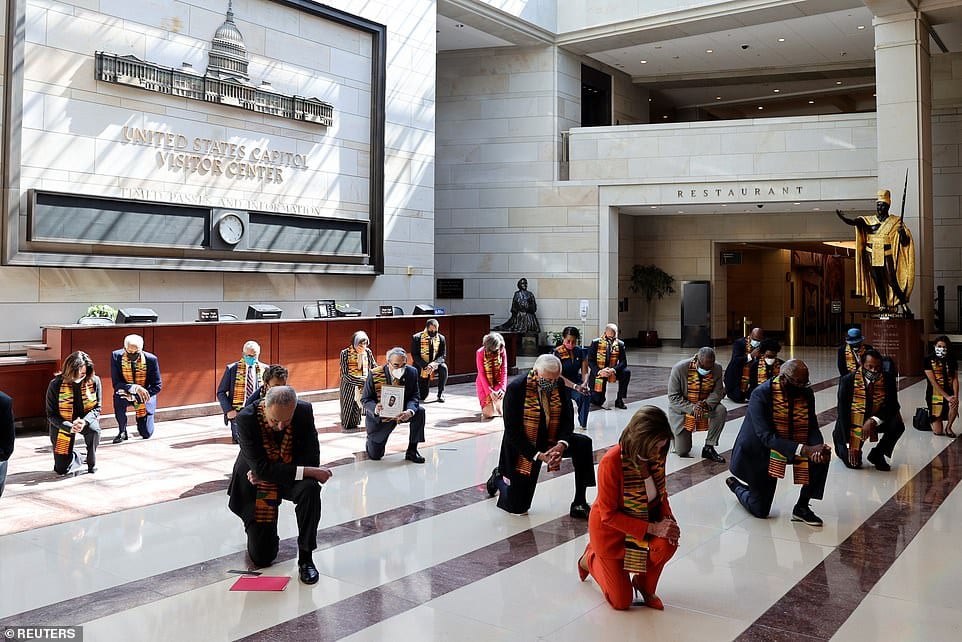
Nancy Pelosi claimed Monday morning that George Floyd is a ‘martyr’ of police brutality as Democrats kneeled for a moment of silence before unveiling a massive police reform bill.
‘The martyrdom of George Floyd gave American experience a moment of national anguish as we grieve for the black Americans killed by police brutality,’ the House Speaker said at the podium. ‘Today this movement of national anguish is being transformed into a movement of national action as Americans from across the country peacefully protest to demand an end to injustice.’
‘The martyrdom of George Floyd,’ she said later in the briefing, ‘has made a change in the world.’
Pelosi said Democrats in Congress are ‘standing with those fighting for justice and action,’ and mentioned other black Americans she say are ‘martyrs’ who have died at the hands of police brutality.
‘Let us, my colleagues, just go over some of those names of martyrdom,’ she said, before listing names like George Floyd, Ahmaud Arbery, Breonna Taylor, Freddie Gray, Michael Brown, Eric Garner, Trayvon Martin and several others.
A team of Democrats, all wearing kente cloths to either honor or stand in solidarity with those with African heritage, gathered for a press conference to reveal details of the bill, claiming the piece of legislation will combat police brutality, especially with the black community.
Members of the Congressional Black Caucus memorably did not boycott Donald Trump’s State of the Union address in 2018, and instead wore brightly colored yellow, green, black and red kente cloths around their shoulders after the president infamously referred to Haiti and some African nations as ‘s***hole counties.’
The unveiling of the proposed legislation follows two weeks of protests across the country in the wake of George Floyd’s death.
Ahead of the press conference, Democrats held a moment of silence at the Capitol for eight minute and 46 seconds – the same amount of time former cop Derek Chauvin had his knee lodged on the back of Floyd’s neck.
‘We were there for eight minutes and 46 seconds on our knees. My members will attest it’s a very long time,’ Pelosi said. ‘It’s a very long time, and I graciously led them in falling over when it was over so that they could do the same thing, but here we are.’
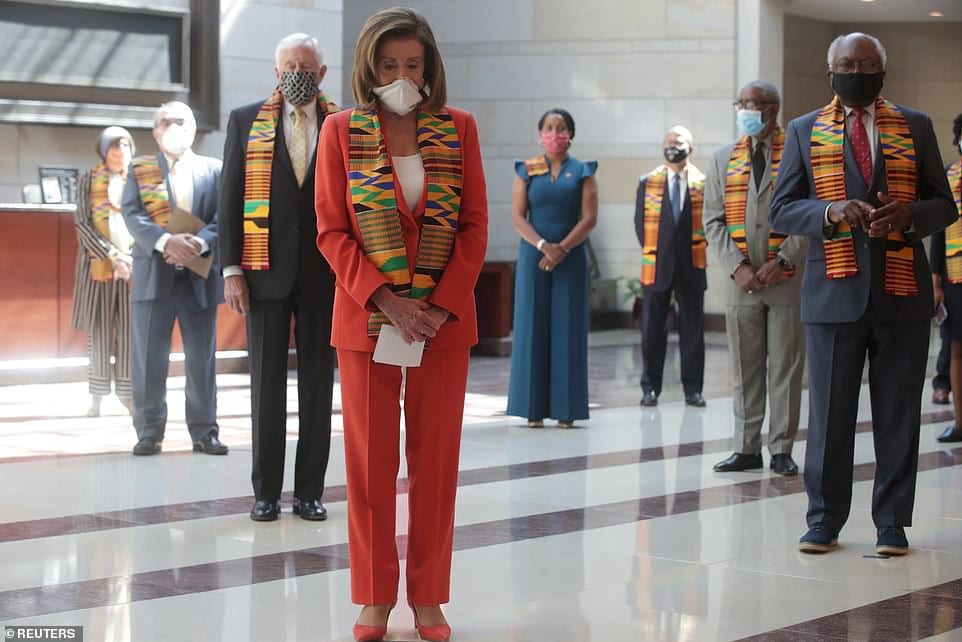
The legislation includes a ban on police using chokeholds or carotid holds, would eliminate no-knock warrants in drug cases and aims to change ‘the standard to evaluate whether law enforcement use of force was justified from whether the force was reasonable to whether the force was necessary.’
The sweeping package would also require nationwide use of body cameras by all police, subject law enforcement officers to civilian review boards and abolish the legal doctrine known as qualified immunity, which protects police from civil litigation, according to congressional sources.
It is unclear if the bill would receive support from Republicans, but the proposal from Democrats comes after Floyd died while in Minneapolis Police custody on Memorial Day.
Senate Minority Leader Chuck Schumer, however, pushed during the press conference on the bill that his Republican colleagues get the bill on the floor of the Senate for debate by July.
‘In the Senate, Democrats are going to fight like hell to make it a reality,’ the New York Democrat said of the legislation, urging Senate Majority Leader Mitch McConnell to act swiftly.
‘Democrats will not let this go away,’ Schumer asserted.
Congressional Black Caucus Chairwoman Karen Bass said during the briefing that she hopes ‘there is a movement that has caught fire.’
A bystander video showed Chavin, a white police officer who was fired shortly after the incident, kneeling on the back of Floyd’s neck for more than eight minutes. The victim repeatedly voiced his pain and claimed he could not breathe, before he went limp underneath Chauvin’s knee.
The incident, which went viral, sparked widespread outrage, unrest and launched more than two weeks of riots and peaceful protests in hundreds of cities across the country.
‘It is time for police culture in many departments to change,’ Bass, who is spearheading the legislation, told CNN Sunday morning.
She added that she hoped the wave of protests would increase pressure on lawmakers to act.
‘We’re in a real moment in our country, the passion that the people are displaying,’ Bass added. ‘That it is going to lay the basis for the momentum for us to bring about the change that we need to do.’
More than a dozen Democratic lawmakers gathered to discuss the bill at a 10:30 a.m. press conference – and while they wore masks, the Democrats did not keep in line with social distancing guidelines, which recommends people remain six-feet from one another.
The legislation would create a national misconduct registry that would show all police officers who have been accused of misconduct.
The National Police Misconduct Registry, Democrats say, would prevent officers found guilty of misconduct too often from moving from one department to another.
The ‘federal registry of all federal, state and local law enforcement officers’ would include misconduct complaints and discipline or termination records, and police departments would be required to declare that each new officer hired is certified.

The bill would also officially make lynching a federal crime and include rules that would make it easier to sue a cop for police brutality.
Republicans, who control the Senate, and President Donald Trump will need to support the bill before the new measures aimed at policing become law.
Trump has repeatedly warned on social media that if Democratic candidate Joe Biden were to win the presidency in November, he would defund the police and U.S. military.
Prominent Democrats have dodged the question of defunding police and the bill being proposed Monday does not include provisions that would drain funding from police departments.
The GOP is likely to hang the defund movement on Democrats in an effort to keep their majority in the Senate and paint all their opposition on the left as extreme.
“House Democrats have gone so extreme with their ‘abolish culture’ that they’re one step away from wanting to outlaw fire departments,” Chris Pack, a spokesman for the NRCC, said. “This is insanity and not what Democrats ran on two years ago.”
The Democrat’s legislation does not address the issue of funding or cutting funding to police departments – but does make contingent on police receiving training on racial and implicit bias at the federal level.
Bass did assert, however, that the bill “does not provide any new money for policing.”
Floyd’s death in Minneapolis, where a police officer knelt on his neck for nearly nine minutes, was the latest in a string of killings of black men and women by U.S. police that have sparked anger on America’s streets and fresh calls for reform.
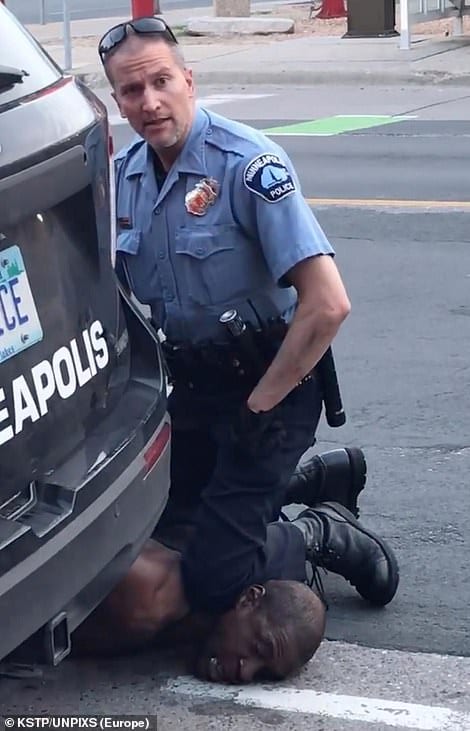
Source: dailymail.co.uk


 Call Center
Call Center



